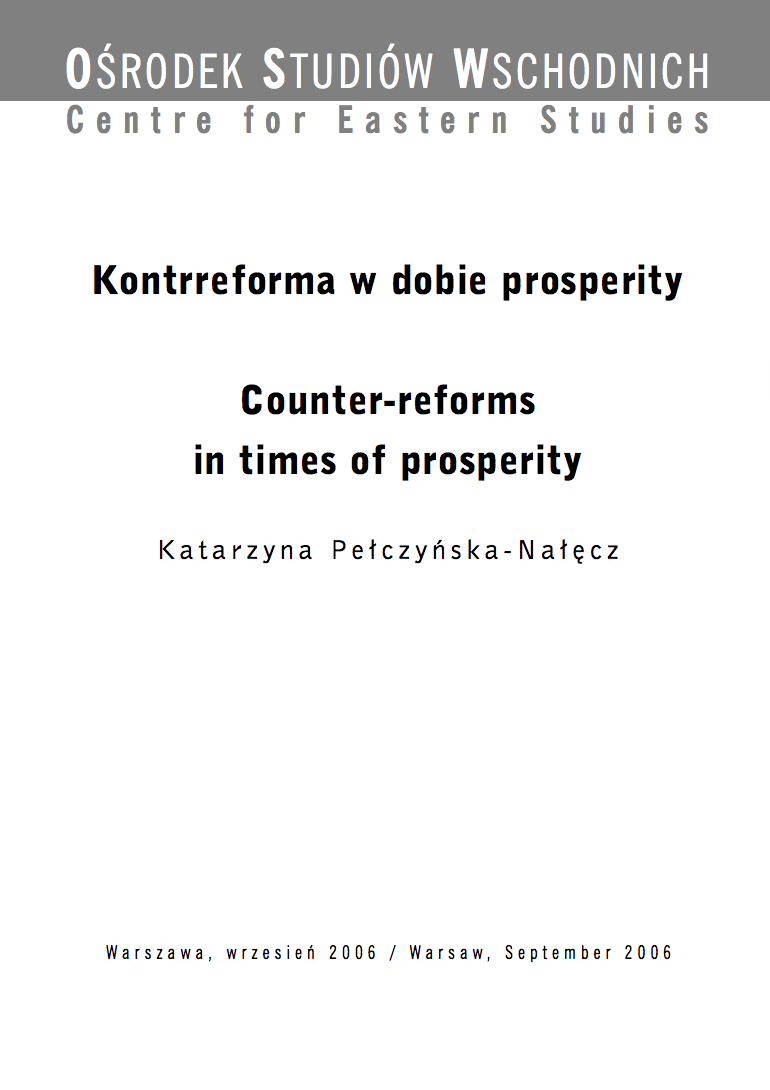Counter-reforms in times of prosperity
Counter-reforms in times of prosperity
Author(s): Katarzyna Pełczyńska-Nałęcz
Subject(s): Civil Society, Governance, Government/Political systems, Developing nations
Published by: OSW Ośrodek Studiów Wschodnich im. Marka Karpia
Keywords: Russia
Summary/Abstract: In 2000, Vladimir Putin came to power after nearly a decade of the rule of the first Russian president, Boris Yeltsin. As prime minister, and later as a candidate for president, Putin announced that he would reform the state. The main assumptions of this reform were presented during a congress of the pro-Kremlin Unity movement, in Putin's address entitled 'Russia at the turn of the millennium' which was delivered on 29 December 1999, and later in a open letter to voters published on 25 February 2000. Both declarations were rather general, but they gave a clear picture of the principal directions of and priority areas for the future president's efforts: they outlined Russia's development path as pro-market and democratic.Nearly seven years have passed since Vladimir Putin came to power, a time for a summary of his achievements. In a way, Vladimir Putin has partially delivered on his initial declarations; indeed, Russia has undergone a deep transformation. However, when seen in the light of the president’s initial promises, the changes appear to be no more than 'counter-reforms', because instead of putting into practice the policy he outlined seven years ago, they have largely followed a different, if not entirely opposite direction.
Series: OSW Point of View
- Page Count: 46
- Publication Year: 2006
- Language: English, Polish
- Content File-PDF

